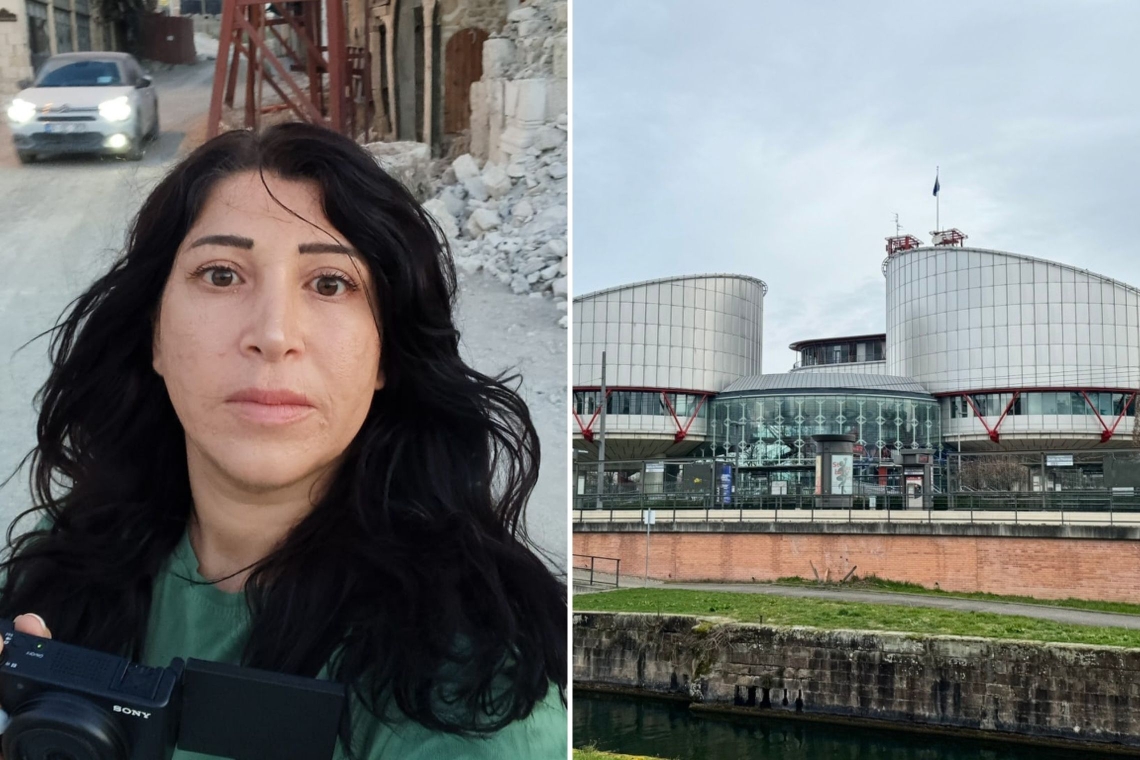European Court of Human Rights (ECHR) has ruled that Turkish journalist and earthquake survivor Burcu Özkaya Günaydın’s conviction for terrorist propaganda over her news-related social media posts was a violation of her freedom of expression and freedom of the press.
The ruling came in response to an application filed by the Media and Law Studies Association (MLSA), which argued that the posts were journalistic in nature and should not have resulted in criminal prosecution. In its Oct. 14, 2025 judgment in the case Parlas and Others v. Türkiye, the court ordered the Turkish government to pay Günaydın €2,500 in compensation. The ruling is final, and applicants are now expected to request a retrial.
Günaydın, who resides in Hatay—a southern Turkish province severely impacted by the February 2023 earthquakes—was detained on Oct. 11, 2019, as part of an investigation by the Hatay Chief Public Prosecutor’s Office into her posts about Turkey’s 2019 military operation in Syria, known as Operation Peace Spring. After being held in custody for one day, she was released under a travel ban.
An indictment dated Nov. 25, 2019 accused her of spreading propaganda for a terrorist organization due to her social media posts on the operation. The posts were related to news coverage of the military campaign, which drew international criticism for targeting Kurdish forces in northern Syria.
On Sept. 22, 2020, the Hatay 2nd High Criminal Court sentenced Günaydın to 1 year and 3 months in prison. The announcement of the verdict was deferred, a common practice in Turkish courts known as “postponement of the announcement of the verdict,” or hükmün açıklanmasının geri bırakılması. The sentence became final after an appeal was rejected. An individual application to Turkey’s Constitutional Court claiming violations of press and expression rights was also denied.
Following the domestic court’s rejection, MLSA took the case to the European court, arguing that Günaydın’s posts were solely composed of journalistic content and did not promote any organization. The ECHR agreed, concluding that the conviction breached both her freedom of expression and press freedom under the European Convention on Human Rights.
In its broader Oct. 14 ruling, the ECHR examined 57 similar applications and found systematic rights violations in Turkey. The court held that filing criminal cases and issuing penalties—including deferred verdicts—for social media posts, protest participation, and chanting slogans violated applicants' rights to freedom of expression, press, and peaceful assembly. The court ordered compensation payments to the applicants in varying amounts.
Commenting on the decision, MLSA Co-Director Attorney Veysel Ok said the ruling sets a critical legal precedent. “The court once again affirmed that opening criminal investigations against journalistic content under the guise of terrorism propaganda constitutes a violation of rights,” he said.
Ok emphasized that the decision holds particular significance not only for journalists accused in similar cases but also for the legal treatment of deferred verdicts. “The ECHR made it clear that even when the announcement of a conviction is postponed, the act itself still amounts to a violation of rights,” Ok said. “This sends a strong message that judicial authorities must not act arbitrarily when dealing with journalists’ social media posts.”
He added that MLSA welcomes the ruling and plans to file for a retrial with the Hatay 2nd High Criminal Court in the near future.



